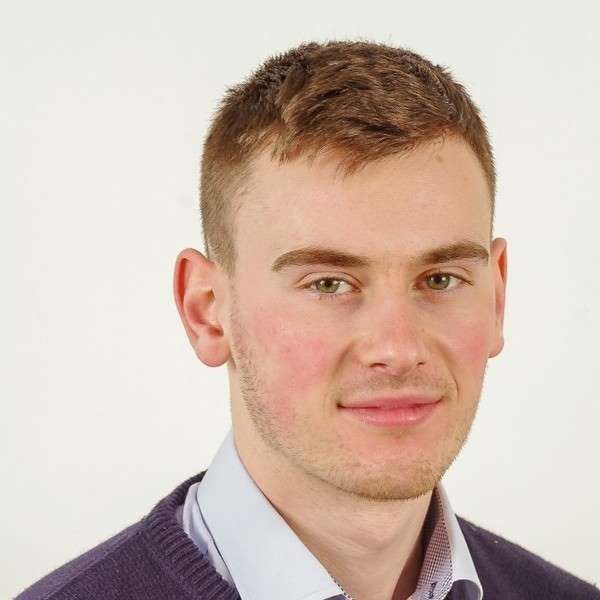WIT researchers selected to take part in the I-Corps@SFI Academy
Tags:
The programme aims to drive commercial enterprise out of academic research teams
Researchers at Waterford Institute of Technology (WIT) have been successfully chosen to be part of the I-Corps@SFI Academy. Commercialisation of research has always been an important focus for WIT. As part of the I-Corps@SFI Academy, researchers can experience evidence-based entrepreneurship training from the world-renowned National Science Foundation Innovation Corps (NSF I-Corps).
The I-Corps@SFI Academy is a new initiative under Science Foundation Ireland’s (SFI) partnership with the NSF I-Corps. The objectives of the I-Corps@SFI Academy are twofold: to support researchers using the NSF I-Corps methodology to realise new opportunities for their research that will, in turn, lead to economic and societal impact; and, to train staff in Research Performing Organisations (RPOs) to guide researchers through this process using the NSF I-Corps methodology. Training under the I-Corps@SFI Academy is being provided by members of Georgia Tech’s Venture Lab and the I-Corps South Node.
The three WIT research projects and team members that have been selected for inclusion are:
Mastitis:
Mohammed Taj-Eldin,
Postdoctoral Researcher, Walton Institute
Mastitis, the infection of the mammary systems of farmed animals, is not only a painful experience but also contributes to reduced performance and elevated costs. Furthermore, treatment of mastitis through the use of antibiotics contributes to antimicrobial resistance. The incidence of clinical mastitis in Ireland is approximately 25% with an approximate cost (depends on pathogen) of €500 per case or ~€5,000 per farm; nationally, the direct costs are €90m annually to the Irish dairy industry. Being able to identify the onset of mastitis several days in advance can invoke action with non-antibiotic treatments thereby 1) ameliorating any subsequent discomfort to the cow, 2) circumventing the need to use antibiotics, and 3) avoiding the associated costs of reduced performance, veterinary bills and the necessary disposal of milk.
Chronic dry eye:
Dr Laurence Fitzhenry,
Lecturer & Researcher Department of Science, WIT
Dry eye (DED) effects >350 million people globally and is the most common reason that patients visit their eye care provider. Moderate-to-severe DED can lead to significant pain, poor quality of life and deteriorating vision. The cycle of DED always includes tear film instability, followed by poor lubrication and inflammation. Treatments range from OTC products that mimic tears to pharmaceutical products which target inflammation. However, our research suggest that the currently approved drug treatments are suboptimal, and millions of patients are left untreated or with significant symptoms. The human DED treatment market reached €4.2 billion in 2018 and is forecast to reach €7.2 billion in 2025.
Agri-Tech Livestock Monitoring:
Paul Malone, Senior Researcher, Walton Institute
Dr Mohit Taneja, Postdoctoral Researcher, Walton Institute
Dr Patrick Lynch, Director, Founder and Senior Researcher, RIKON
Agri-Tech Livestock Monitoring is currently validated for lameness detection in a set of real-world trials across 6 farms totalling 1,500 cows and developed to TRL 7. Based upon technical and market evidence from trials, the technology will be extended to incorporate other health issues and increase the commercial viability by offering a health detection platform. Timely health issue detection is a major and costly problem in farming that farmers and practitioners haven’t yet solved adequately. It is one of the factors for reduced productivity on many dairy farms, at least through reduced reproductive efficiency, milk production and increased culling. The monetary costs of these issues can be categorised as either direct cost, which includes cost of treatment (drugs, dressings, etc.), cost of milk withdrawal, veterinary services call out, or indirect cost which includes increased culling and a decrease in reproductive efficiency.
The Technology Transfer team in WIT is delighted to support this initiative and look forward to embedding key skills across our research teams. Dr James O’Sullivan RTTP commented that, “broadening and developing entrepreneurial skills across WIT will pay dividends in the future to the regional economy.”
Speaking on behalf of his fellow researchers, Paul Malone said, “We are delighted to be part of the I-Corps@SFI Academy as this gives us a great opportunity to realise the full commercial potential of our research.”
In the next few years WIT expects to see the above three research projects develop into spin out companies.




